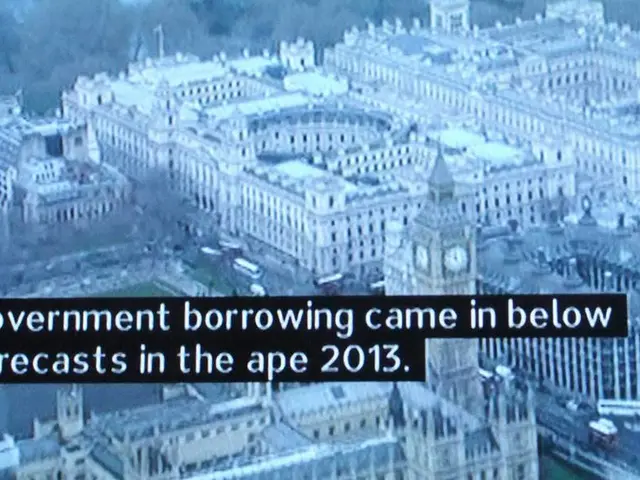Unfiltered Global Economic Forecasts: A Breakdown
Global Economy: A Looming Storm
World Economy Potentially Deteriorates Due to Trump's Imposed Tariffs, According to IMF
The economic forecasting landscape has taken a turn due to the IMF's predicted downward revision of global growth to 2.8% in 2025, a stark contrast to the initial projection of 3.3% in January. Global trade growth is anticipated to drop to 1.7%, signaling a significant decrease in economic momentum. The global economy is grappling with intensified downside risks stemming from policy shifts, simmering trade tensions, and tumultuous financial market adjustments. The probability of a global recession has surged to 30%, according to the IMF.
U.S. Economy: Paradigm Shift
The anticipated U.S. economic growth in 2025 now stands at a modest 1.8%, reflecting a drop from earlier estimates. The escalating trade war and tariffs have emerged as major factors contributing to the U.S. deceleration. As stated by Fitch Ratings, annual Growth in the United States might dip as low as 0.4% by the final quarter of the year. The specter of recession is looming large, with the likelihood rising to 37%.
China: A Chess Move in the Trade War
The U.S. tariffs have had a defining impact on China, with the government levying tariffs on Chinese goods to prohibitively high levels. This move has fostered a reallocation of resources, reduced competition, and potentially sapped productivity in both nations. Although specific growth projections for China are not mentioned in our analysis, the tariffs have introduced uncertainty and tilted the trade dynamics, contributing to global economic instability.
Russia: Riding the Economic Influx?
The influence of U.S. tariffs on Russia is less apparent compared to China as Russia's economy is less intertwined in the U.S.-China trade dynamics. However, Russia may leverage the trade tensions and potential re-routing of trade flows to bolster its economy. It's essential to note that Russia's primary challenges are usually rooted in sanctions and the erratic global energy market rather than direct effects from U.S. tariffs on China.
Tariffs: A Double-Edged Sword
Tariffs, in general, act as a negative supply shock that leads to resource reallocation towards less competitive products, diluted aggregate productivity, and escalated production costs. They suppress competition, innovation, and promote rent-seeking behaviors, further dragging down the global economic outlook.
In summary, the global economic landscape is grappling with a myriad of challenges, with trade tensions and tariffs playing a significant role in the anticipated slowdown of various economies, particularly the U.S. and China. Russia and other nations may experience less direct but still considerable effects as a result of these tensions. It is crucial to navigate this dynamic and shifting landscape with wisdom and foresight as the implications of these economic trends will have profound repercussions across the world.
- I'm not sure if the revisions in the IMF's forecasts for global growth in 2025, from 3.3% to 2.8%, accurately reflect the general-news, considering the increasing risks from political policy shifts, trade tensions, and financial market adjustments.
- The forecasts for the US economy in 2025 indicate a decrease in growth due to factors such as tariffs and the escalating trade war, yet I'm not sure if the anticipated growth of 1.8% truly reflects the industry's financial stability.
- The tariffs imposed by China in response to US tariffs create uncertainty and risks for both countries, as they potentially reduce competition and productivity in the industry, subjecting them to higher production costs.
- While Russia may benefit indirectly from the US-China trade tensions by potentially re-routing trade flows, the country's primary challenges continue to stem from sanctions and the erratic global energy market rather than direct effects from US tariffs on China.
- As tariffs often act as a negative supply shock, I'm not sure if their implementation is an effective strategy, as they can suppress competition, innovation, and promote rent-seeking behaviors, potentially adding to the general risks facing the global economy.







